- Home
- Conn Iggulden
Lords of the Bow c-2 Page 25
Lords of the Bow c-2 Read online
Page 25
"He may have exaggerated a little, lord. My authority is strongest among the lowest castes-the dockworkers and tradesmen. The nobles live a different life and it was only rarely that I could find some way to sling reins on their power."
Genghis grunted. He could not express the discomfort he felt sitting in such a house, surrounded by a thousand others. He could almost feel the press of humanity all around him; Khasar had been right: for one raised in the clean winds of the plains, the city smelled terrible.
"You hate them, then, these nobles?" Genghis asked. It was not a casual question and Chen Yi considered his answer carefully. The language of the tribes lacked the words he needed, so he spoke in his own tongue and let Ho Sa translate.
"Most of them live lives so distant that I do not think of them, lord. Their judges make much of enforcing the emperor's laws, but they do not touch the nobles. If I steal, I can have my hands cut off or be whipped to death. If a noble steals from me, there will be no justice. Even if he takes a daughter or a son from me, I can do nothing." He waited patiently for Ho Sa to finish speaking, knowing his feelings had become obvious as Genghis stared at him. "Yes, I hate them," he said.
"There were bodies hanging from the barracks gates as I came in," Genghis said. "Two or three dozen. Was that your work?"
"I settled old debts, lord, before you arrived."
Genghis nodded, refilling both cups. "A man must always settle his debts. Are there many who feel as you do?"
Chen Yi smiled bitterly. "More than I can count, lord. The Chin nobles are an elite who rule many times their number. Without their army they would have nothing."
"If you have the numbers, why do you not rise up against them?" Genghis asked in genuine curiosity.
Chen Yi sighed, once more using the Chin tongue, the words pouring out at great speed. "Bakers, masons, and boatmen do not make an army, lord. The noble families are ruthless at the first sign of rebellion. There have been attempts in the past, but they have spies among the people and even a collection of weapons would have their soldiers descend upon us. If a rebellion ever took root, they would call on the emperor and his army would march. Whole towns can be put to the sword or burned. I have heard of it, in my own lifetime." He hesitated, aware as Ho Sa spoke after him that the khan would think nothing of such acts. Chen Yi almost held up a hand to stop the Xi Xia soldier, but held still. Baotou had been spared, after all.
Genghis assessed the man he faced, fascinated. He had forced the idea of a nation on the tribes, but it was not shared by men like Chen Yi, not yet. Each city might have been ruled by the Chin emperor, but they did not look to him for leadership, or feel part of his family. It was clear that the nobles took their authority from the emperor. It was also clear that Chen Yi hated them for their arrogance, wealth, and power. The knowledge could be useful.
"I have felt their gaze on my own people, Chen Yi," he said. "We have become a nation to resist them-no, to crush them."
"And will you then rule as they did?" Chen Yi asked, hearing the bitterness in his tone before he could stop himself. He felt a dangerous freedom in talking to the khan, he realized. The usual curbs and cautions on his tongue were flimsy protection under that yellow gaze. To his relief, Genghis chuckled.
"I have not given thought to what comes after the battles. Perhaps I will rule. Is that not the right of a conqueror?"
Chen Yi took a deep breath before replying. "To rule, yes, but will your lowest-ranking warrior walk like an emperor among those you have conquered? Will he sneer and take whatever he has not earned?"
Genghis stared at him. "The nobles are the family of the emperor? If you are asking if my family will take what they want, of course they will. The strong rule, Chen Yi. Those who are not strong dream of it." He paused, trying to understand. "You would have me bind my people by petty rules?" he asked.
Chen Yi took another deep breath. He had spent his life with spies and falsehood, protection layered on protection against the day when the emperor's army would root him out in fire and blood from the city. That day had not come. Instead, he found himself facing one before whom he could speak without any restraint. He would never again have such an opportunity.
"I understand what you have said, but will that right be passed on to their sons and grandsons, further? When some cruel weakling kills a boy a hundred years from now, will no one dare protest because your blood is in him?"
Genghis remained motionless. After a long time, he shook his head. "I do not know these Chin nobles, but my own sons will rule after me, if they have the strength. Perhaps in a hundred years, my descendants will still rule and be these nobles you despise." He shrugged, draining his cup.
"Most men are like sheep," he went on. "They are not as we are." He waved away Chen Yi's reply. "Do you doubt it? How many in this city can match your influence, your power, even before I came? Most cannot lead-the idea terrifies them. Yet for those like you and me, there is no greater joy than knowing there is no help coming. The decision is ours alone." He gestured wildly with his cup, spilling some of the wine. Chen Yi broke the wax seal on another bottle and poured the wine once more.
The silence grew strained. To the surprise of both men, it was Ho Sa who broke it.
"I have sons," he said. "I have not seen them in three years. When they are grown, they will follow me into the army. When men hear they are mine, they will expect more from them. They will rise faster than a man with no name. I am content with that. For that, I work hard and endure anything."
"They will never be noble, those soldier sons of yours," Chen Yi said. "A boy from the great houses would order them to their deaths in a fire just to save a pot like the one I broke tonight."
Genghis frowned, troubled by the image. "You would make all men the same?"
Chen Yi shrugged. His thoughts swirled in wine and he didn't know he spoke in the Chin tongue.
"I am not a fool. I know there is no law for the emperor, or his family. All law comes from him and the army he wields. He cannot be under it like other men. For the rest, though, for the thousands of parasites who feed from his hand, why should they be allowed to murder and steal without punishment?" He emptied his cup as Ho Sa translated, nodding as if the soldier spoke in agreement.
Genghis stretched his back, wishing for the first time that Temuge were there to argue the point for him. He had intended to speak to Chen Yi and understand the strange breed that lived in cities. Instead, the little man made his head swim.
"If one of my warriors wishes to marry," Genghis said, "he finds an enemy and kills him, taking whatever he owns. He gives those horses and goats to the girl's father. Is that murder and theft? If I forbade that, I would make them weak." He was light-headed from the wine, but his mood was mellow and once more he filled the three cups.
"Does this warrior take from his own family, his own tribe?" Chen Yi asked.
"No. He would be a criminal, beneath contempt if he did," Genghis replied. Even before Chen Yi spoke again, he saw where the little man was going.
"Then what of your tribes now that they are bound together?" Chen Yi said, leaning forward. "What will you do if all Chin lands are yours?"
It was a dizzying concept. It was true that Genghis had already forbidden young tribesmen to raid each other, instead providing marriage gifts from his own herd. It was not a solution he could maintain for long. What Chen Yi suggested was merely an extension of that peace, though it would encompass lands so vast it was difficult to imagine.
"I will think on it," he said, slurring slightly. "Such thoughts are too rich to be eaten in one sitting." He smiled. "Especially as the Chin emperor remains safe in his city and we have barely begun. Perhaps next year I will be scattered bones."
"Or you will have broken the nobles in their forts and cities," Chen Yi said, "and have a chance to change it all. You are a man of vision. You showed that when you spared Baotou."
Genghis shook his head blearily. "My word is iron. When all else is lost, there is still that. But
if I had not spared Baotou, it would have been another city."
"I do not understand," Chen Yi replied.
Genghis turned his hard gaze on him again. "The cities will not surrender if there is no benefit to them." He raised a clenched fist and Chen Yi's gaze was drawn to it. "Here, I have the threat of bloodshed, worse than anything they can imagine. Once I raise the red tent, they know they will lose every man within the walls. When they see the black, they know they will all die." He shook his head. "If death is all I offer, they have no choice but to fight to the last man." He dropped the fist and reached again for a fresh cup, which Chen Yi filled with shaking hands.
"If I spare even one city, the word will spread that they do not need to fight. They can choose to surrender when the white tent goes up. That is why I spared Baotou. That is why you still live."
Genghis recalled his other reason for seeking the meeting with Chen Yi. His mind seemed to have lost its customary sharpness, and he thought perhaps he should not have drunk quite so much.
"Do you have maps in this city? Maps of the lands to the east?"
Chen Yi felt dazed at the insight he had been given. The man who faced him was a conqueror who would not be stopped by the feeble Chin nobles and their corrupt armies. He shivered suddenly, seeing a future filled with flames.
"There is a library," he said, stammering slightly. "It has been forbidden to me until now. I do not think the soldiers destroyed it before they left."
"I need maps," Genghis replied. "Will you look over them with me? Help me plan the destruction of your emperor?"
Chen Yi had matched him drink for drink and his thoughts spun themselves to wisps in his head. He thought of his dead son, hanged by nobles who would not even look at a man of low birth. Let the world change, he thought. Let them all burn.
"He is not my emperor, lord. Everything in this city is yours. I will do what I can. If you want scribes to write new laws, I will send them to you."
Genghis nodded drunkenly. "Writing," he replied, scornfully. "It traps words."
"It makes them real, lord. It makes them last."
The morning after his meeting with Chen Yi, Genghis awoke with a pounding headache so bad he did not leave his ger all day except to vomit. He could not remember much after the sixth bottle had been brought out, but Chen Yi's words came back to him at intervals and he discussed them with Kachiun and Temuge. His people had only known a khan's rule, with all justice stemming from one man's judgment. Even as things stood, Genghis could have spent each day deciding arguments and punishing criminals in the tribes. It was already too much for him, yet he could not allow the small khans to resume their roles, or risk losing it all.
When Genghis gave the order to move on at last, it was strange to leave a city without seeing flames on the horizon behind them. Chen Yi had given him maps of Chin lands all the way to the eastern sea, more precious than anything they had won before. Though Chen Yi remained in Baotou, the mason Lian had agreed to accompany Genghis to Yenking. Lian seemed to regard the walls of the emperor's city as a personal challenge to his skill, and he had come to Genghis to make the offer before he could be asked. His son had not beggared his business in his absence, and Genghis privately thought it was a matter of going on with the invading army or settling for a quiet retirement.
The great trek continued into Chin lands, the central mass of carts and gers moving slowly, but always surrounded by tens of thousands of horsemen looking for the slightest chance to earn the praise of their commanders. Genghis had allowed messengers to travel from Baotou to other cities on their route to the mountains west of Yenking, and the decision quickly bore fruit. The emperor had stripped the garrison from Hohhot, and without soldiers to bolster their nerve, the city surrendered without a single arrow being shot, then provided two thousand young men to be trained in the art of sieges and the pike. Chen Yi had shown the value of that with his own draft, choosing the best of his city to accompany the Mongols and learn the skills of battle. It was true that they had no horses, but Genghis gave them as infantry to Arslan and they accepted the new discipline without question.
Jining's garrison had refused to obey the emperor's order, and the gates remained closed. It had been burned to the ground after the black tent was raised on the third day. Three other cities had surrendered after that. Those men who were young and strong were taken as prisoners, driven like sheep. There were simply too many to use as soldiers without seeing the tribes outnumbered. Genghis did not want them, but he could not leave so many at his back. His people drove half their number again over the land, and every day, there were bodies in their wake. As the nights grew colder, the Chin prisoners huddled together and whispered, a constant susurration that was eerie in the darkness.
It had been one of the hottest summers any of them had ever known. The old men said a freezing winter would follow, and Genghis did not know whether he should move on the capital or leave the campaign for another year.
The mountains before Yenking were already visible and his scouts raced after mounted observers for the emperor whenever they appeared in the distance. Though their horses were swift, some of the Chin watchers were caught, and each one added detail to the picture Genghis was building.
On a morning where the ground had frozen in the night, he sat on a pile of wooden saddles and stared into the weak sun. It rose over the range of steep green crags that protected Yenking from him, shrouded in mist. Taller than the peaks between the Gobi and Xi Xia, they made even the mountains he remembered from home seemed less impressive. Yet the captured observers spoke of the pass known as the Badger's Mouth and he felt he was being drawn to it. The emperor had gathered his strength there, gambling on a single massive force that dwarfed the army Genghis had brought to that place. Everything could end there and all his dreams would become ashes.
He chuckled to himself at the thought. Whatever the future held, he would meet it with his head raised and his sword drawn. He would struggle to the end, and if he fell against his enemies, it would have been a life well spent. Part of him felt a pang at the thought that his sons would not long survive his death, but he crushed the weakness. They would make their own lives as he had made his. If they were swept up in the wind of greater events, that would be their fate. He could not protect them from everything.
In the ger at his back, he heard one of Chakahai's children squalling. He could not tell if it was the son or the daughter. He brightened at the thought of the little girl who, though barely walking, toddled over to press her head affectionately against his leg whenever she saw him. He had seen a terrible jealousy in Borte when she had witnessed the simple act, and he sighed at the memory. Conquering enemy cities was far less complicated than the women in his life, or the children they bore for him.
Out of the corner of his eye, he saw his brother Kachiun approach, strolling along one of the camp paths in the morning sun.
"Have you escaped out here?" Kachiun called to him. Genghis nodded, patting a place next to him on the saddles. Kachiun joined him and handed Genghis one of two hot pouches of mutton and unleavened bread, thick with warm grease. Genghis took his gratefully. He could smell snow on the air and he longed for the cold months to come.
"Where is Khasar this morning?" Genghis asked, tearing off a piece of the bread with his fingers and chewing it.
"Out with Ho Sa and the Young Wolves, teaching them how to charge against groups of the prisoners. Have you seen it? He gives the prisoners pikes! We lost three young men yesterday against them."
"I heard," Genghis said. Khasar used only small groups of the prisoners to train. It surprised Genghis how few were willing to take part, even with the promise of a pike or a sword. Surely it was better to die like that than in listless apathy. He shrugged to himself at the thought. The young men of the tribes had to learn to fight, as they would once have done against their own people. Khasar knew what he was doing, Genghis was almost certain.
Kachiun was watching him in silence, a wry smile on his fa
ce.
"You never ask about Temuge," he said.
Genghis grimaced. His youngest brother made him uneasy and Khasar seemed to have fallen out with him. In truth, he could not make himself care about Temuge's latest enthusiasms. He surrounded himself with captured Chin scrolls, reading them even by lamplight in darkness.
"So why are you sitting here?" Kachiun asked to change the subject.
His brother snorted. "Do you see the men waiting nearby?"
"I noticed one of the Woyela sons, the eldest," Kachiun admitted. His sharp eyes missed nothing.
"I have told them not to approach me until I stand. When I do, they will come with questions and demands, as they do every morning. They will make me decide which one of them has the right to a particular colt, as one owns the mare and one the stallion. Then they will want me to commission new armor from some metalworker who just happens to be a relative. There is no end to it."
He groaned at the thought. "Perhaps you can delay them long enough for me to get away."
Kachiun smiled at his brother's predicament. "And I thought nothing could frighten you," he said. "Appoint another to deal with them. You must be free to plan the war with your generals."
Genghis nodded, reluctantly. "You have said it before, but who can I trust in such a position? At a single stroke, he would have as much power as any man in the tribes." An answer occurred to both of them at the same time, but it was Kachiun who spoke.
"Temuge would be honored to take on the work. You know he would."
Genghis did not reply and Kachiun went on as if he sensed no objection.
"He is less likely to steal from you than other men, or to abuse the position. Give him a title like 'Master of Trade.' He will be running the camp in a few days." Seeing that his brother was unmoved, Kachiun chose another approach.
"It might also force him to spend less time with Kokchu."
Genghis looked up at that, seeing the waiting men take a step forward in case he was about to rise. He thought back to the conversation with Chen Yi in Baotou. Part of him wanted to make every decision himself, but it was true that he had a war to win.

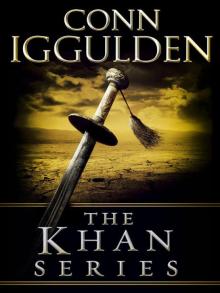 The Khan Series 5-Book Bundle
The Khan Series 5-Book Bundle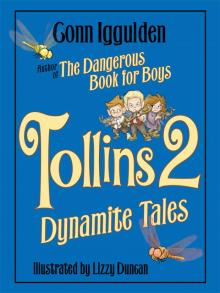 Tollins 2: Dynamite Tales
Tollins 2: Dynamite Tales Tollins: Explosive Tales for Children
Tollins: Explosive Tales for Children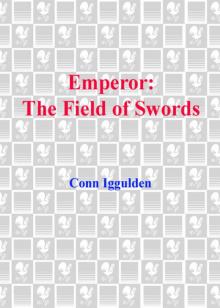 The Field of Swords
The Field of Swords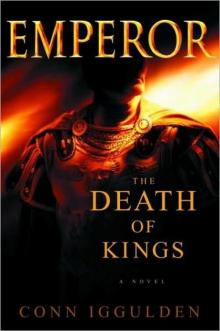 The Death of Kings
The Death of Kings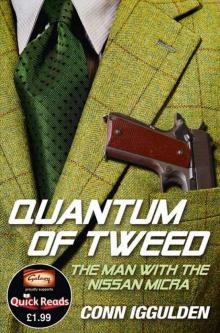 Quantum of Tweed: The Man With the Nissan Micra
Quantum of Tweed: The Man With the Nissan Micra Bones of the Hills
Bones of the Hills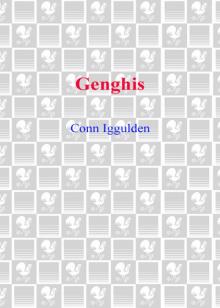 Genghis: Birth of an Empire
Genghis: Birth of an Empire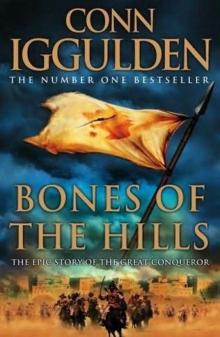 The Gates of Rome
The Gates of Rome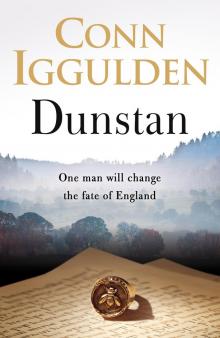 Dunstan
Dunstan Fig Tree
Fig Tree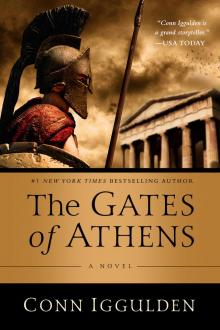 The Gates of Athens
The Gates of Athens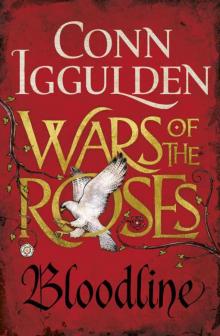 Stormbird
Stormbird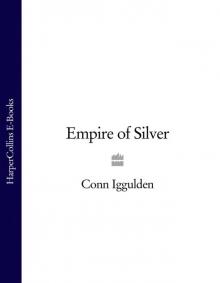 Khan: Empire of Silver
Khan: Empire of Silver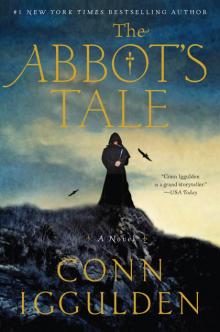 The Abbot's Tale
The Abbot's Tale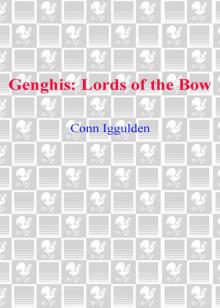 Gengis: Lords of the Bow
Gengis: Lords of the Bow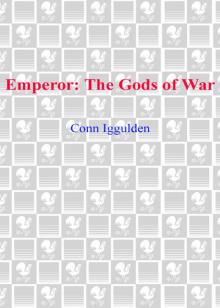 The Gods of War
The Gods of War Blackwater
Blackwater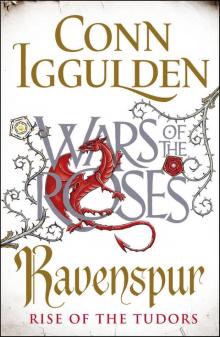 Ravenspur: Rise of the Tudors
Ravenspur: Rise of the Tudors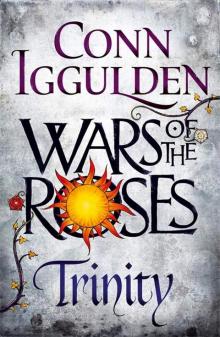 Wars of the Roses: Trinity (War of the Roses Book 2)
Wars of the Roses: Trinity (War of the Roses Book 2)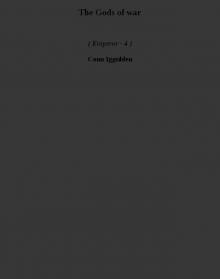 The Gods of war e-4
The Gods of war e-4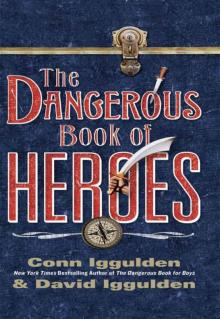 The Dangerous Book of Heroes
The Dangerous Book of Heroes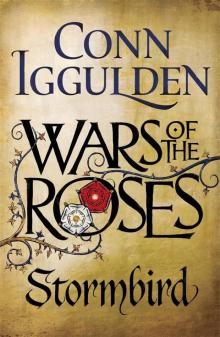 Stormbird wotr-1
Stormbird wotr-1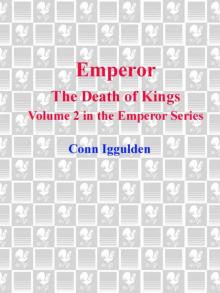 Emperor: The Death of Kings
Emperor: The Death of Kings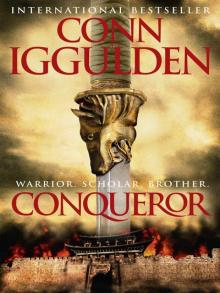 Conqueror (2011) c-5
Conqueror (2011) c-5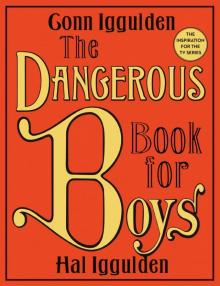 The Dangerous Book for Boys
The Dangerous Book for Boys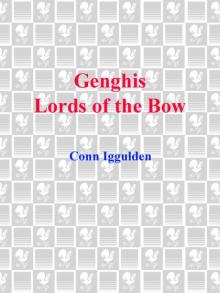 Genghis Lords of the Bow
Genghis Lords of the Bow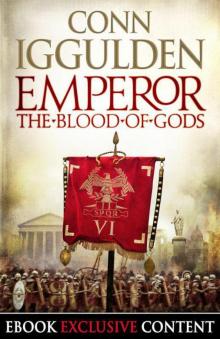 Emperor: The Blood of Gods (Special Edition) (Emperor Series, Book 5)
Emperor: The Blood of Gods (Special Edition) (Emperor Series, Book 5)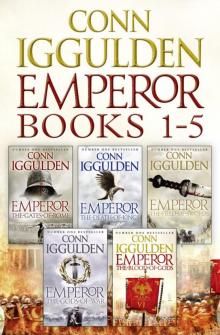 The Emperor Series: Books 1-5
The Emperor Series: Books 1-5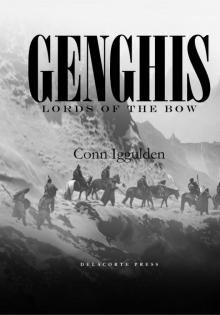 Lords of the Bow c-2
Lords of the Bow c-2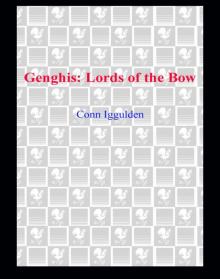 Lords of the Bow
Lords of the Bow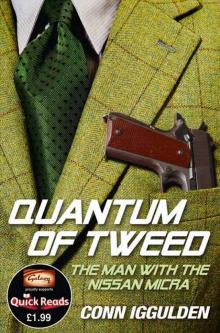 Quantum of Tweed
Quantum of Tweed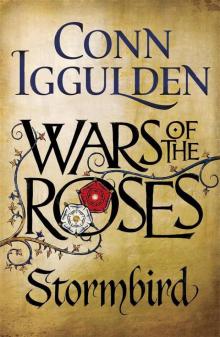 Wars of the Roses 01 - Stormbird
Wars of the Roses 01 - Stormbird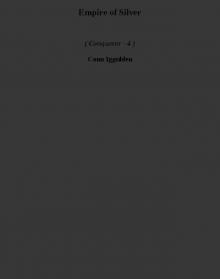 Empire of Silver c-4
Empire of Silver c-4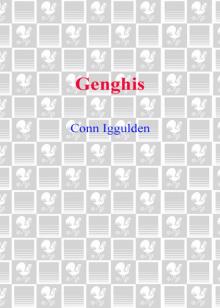 Birth of an Empire
Birth of an Empire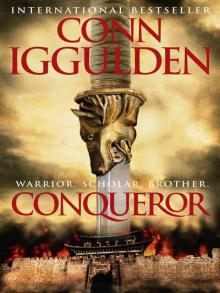 Conqueror (2011)
Conqueror (2011)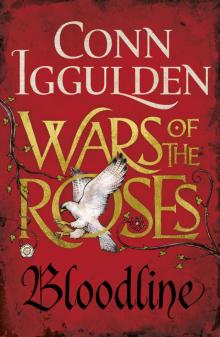 Wars of the Roses: Bloodline: Book 3 (The Wars of the Roses)
Wars of the Roses: Bloodline: Book 3 (The Wars of the Roses) Bones Of the Hills c-3
Bones Of the Hills c-3 Empire of Silver
Empire of Silver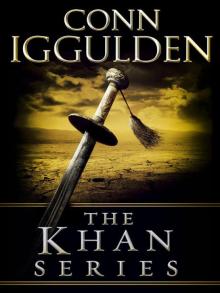 The Khan Series 5-Book Bundle: Genghis: Birth of an Empire, Genghis: Bones of the Hills, Genghis: Lords of the Bow, Khan: Empire of Silver, Conqueror
The Khan Series 5-Book Bundle: Genghis: Birth of an Empire, Genghis: Bones of the Hills, Genghis: Lords of the Bow, Khan: Empire of Silver, Conqueror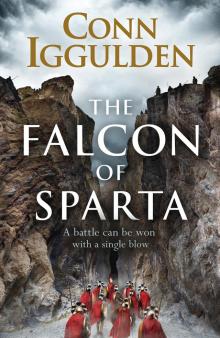 The Falcon of Sparta
The Falcon of Sparta Explosive Tales for Children
Explosive Tales for Children